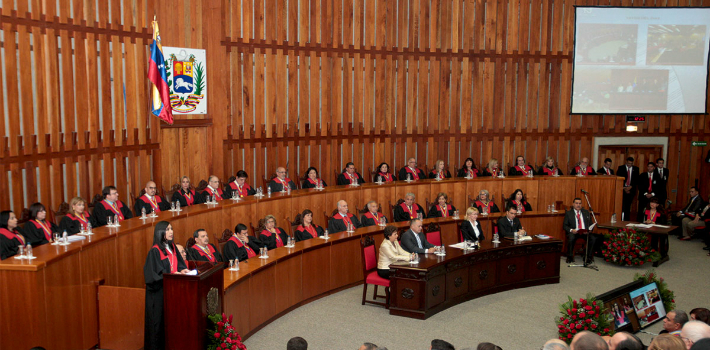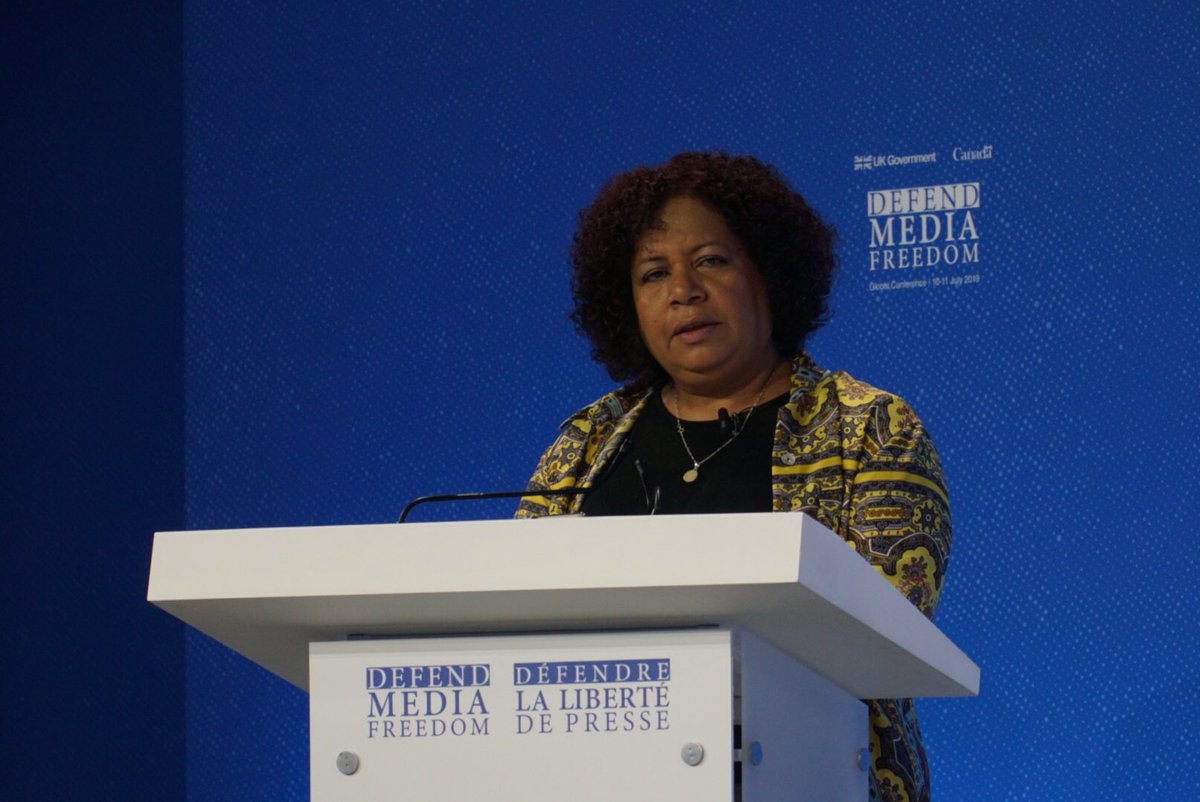The following is a report on the human rights situation in the Guajira Municipality of Zulia state, amid the emergency brought about by the COVID-19 pandemic and the measures adopted by the de facto government of Nicolás Maduro. The report, prepared by journalist and human rights activist Algimiro Montiel, covers several situations that affected the rights to food, free expression, free transit, personal freedom, among others, of the Wayúu and Añu peoples who inhabit the region, under military control since 2010.
‘Guajira’
The border municipality of Guajira is located in the extreme north of the state of Zulia. Indigenous people of the Wayuu ethnic group occupy 80% of the territory while the Añús occupy 10%. The remaining is inhabited by the non-indigenous population. It is known for being the busiest border crossing and the least shown in the media. It is an important point for people entering or leaving the country, especially through Paraguachón, one of the crossing points and the most diverse of all, where corruption and illegality cohabitate in broad daylight.
On March 15, the Guajira municipality received a strong hit after the announcement of the presence of COVID-19 in two patients in Miranda state. Colombian President Iván Duque blocked the border and a war-like military mobilization was activated from Venezuela. The mayor’s office sent a group of doctors to the Paraguachón toll station to take care of people who enter the country through informal trails, bypassing all regular controls.
That same day, the Mayor’s Office of La Guajira deployed the communal councils to sell food to more than 30,000 from Mercal Casa a Casa (Mercal House by House) program, and to another 25,000 who did not register and were included under the name of ‘Laggards’. They received food supplies at a cost of 120 thousand bolivars. Public workers and University students also received provisions, reaching a total of more than 100,000 bags of food containing 13 items:
4 kilos of Rice, 2 kilos of Lentils, 1 liter of Cooking Oil, 1 kilo of Sugar, 1 kilo of Black beans, 2 kilos of Pasta, 1 kilo of Wheat Flour, 2 kilos of Corn Flour.
March 16. The Venezuelan state ordered a ‘Collective Quarantine’, which for many meant doctors monitoring people in the streets and public places for possible positive cases. However, the quarantine meant suspending all educational activities and blocking the traffic over the Río Limón Bridge (which connects Mara and Maracaibo municipalities with La Guajira) and the road from Río Limón to Paraguachón, leaving the municipality isolated. Transportation began to flow in a smaller quantity and the fares increased, from 50 thousand bolivars for a short ride to 100 thousand a few hours later. People stayed at home and stores closed, leaving the streets deserted after a few hours.
March 17. President Iván Duque formally announces the total closure of his country’s borders with Venezuela, making it clear that the informal trails would no longer serve to enter Maicao because they were militarized by Colombia. This began to worry the Wayuu population, who used to cross by foot despite it being closed by order of Nicolás Maduro since September 7, 2015, to bring food and other items into Zulia, after bribing the Venezuelan military.
The worries began to be felt in the Troncal del Caribe International Highway, which used to be a very busy road but now only a few Venezuelans were seen entering from Colombia to spend the Quarantine with their families, fearing the worst. Around 1500 people crossed from Colombia and were prevented from driving over the Río Limón bridge by two tanks of the National Guard. They were joined by the people coming from Maracaibo attempting to cross the bridge into La Guajira. Transit was not allowed until the authorities decided on it.
At 6:25 PM, residents of the Paraguachón neighborhood (Colombia) attacked one of the trucks loaded with food for Venezuela. The residents assured the Colombian press that their action responded to the fact that the trucks belonged to the Venezuelan government, who profits at the cost of the people’s needs. In the looting, the driver of the truck was injured, the vehicle destroyed, and all the cargo was lost while the other trucks managed to be protected by the Colombian police, after dispersing the protesters with tear gas.
By 11:30 PM, the anger could not be contained anymore, and the people stranded at the Río Limón bridge lost their calm and began to protest in front of the National Guard, singing the national anthem and demanding to be allowed to cross and get to their home. Everything was in vain as the authorities increased the number of officers, and the population decided to burn the bush on one side of the road to generate more pressure. Two hours later the authorities agreed to transfer them to Maracaibo and La Guajira, ending the odyssey.
March 18. The control over the roads by the authorities intensified. People stopped leaving their homes simply because public transportation was unavailable. Everything paralyzed except for Los Filuos market, where prices increased due to the bribes merchants had to pay to move supplies from Maicao to La Guajira.
March 23. 6:15 PM, residents of El Arroyo and Las Guardias neighborhoods tried to loot several trucks loaded with food entering from Colombia under the authorization of the mayor of La Guajira and the Integral Defense Area (Zodi). The National Guard prevented the looting by intimidating the people with tanks and public order control equipment. People seized Las Guardias road post demanding food, but it was all in vain. The response of the officers was: “If they do not leave, we have to act”, and at around 12:40 PM, the neighbors got tired and returned to their homes. At 2:30 AM, about 18 trucks drove on this road escorted by more than 80 GNB troops on motorcycles, vehicles, and tanks, but this did not prevent the residents of the Las Pitias neighborhood from attacking them with stones. The convoy escaped with broken windows.
The situation lingers across the town, as the residents claim to continue stalking these trucks because the quarantine keeps people from making a living. Meanwhile, the municipal government reactivated the Coordination of Economic and Commercial Activities of La Guajira, allowing some merchants to circulate on Tuesdays and Thursdays from 08:00 AM to 02:00 PM.
-Business and Economic Context.
There is no emergency plan for merchants in the Guajira municipality. The few who supply their stores do so on their own. Risking their lives, they cross into Colombia through irregular trails under the control of the authorities. They often have to bribe the Venezuelan authorities and pay high sums to cross, increasing the final price of their products by 80%.
The Mayor’s Office and the Zodi authorized the passage of some trucks. They cross the trails on the border, then are escorted by the National Guard and PoliGuajira to the Mara municipality and sometimes to Maracaibo. Only a small group of merchants, most of them from out of town, is the recipient of such benefits. They are the ones in charge of the sale and distribution of food in the capital of the Zulia region, leaving aside the real merchants who serve the communities.
The few grocery stores that still keep their doors open are left without supplies and according to a survey carried out in more than 15 of them, food stocks will deplete by the end of March.
There is no demand in the stores for groceries since the population remains without cash income, much less in debit card accounts. Stores having a card terminal see sales below the daily average, and many times nothing is sold at all.
Most of the informal trade (fast food vendors, drinks, handicrafts, motorcycle taxis, stalls, buses) is paralyzed.
More than 80% of the labor and commercial sector is paralyzed. Only health, security, and local government activities go on.
-Health Services Context.
Two Hospitals in the municipality are active, along with them two Comprehensive Diagnostic Centers in Sinamaica and Paraguaipoa. Medical personnel is available but they find it difficult to get to their jobs because of the lack of public transportation.
The conditions of the health centers are minimal. There are supplies in a small quantity but for a strict emergency. Many patients must buy their supplies, and only one ambulance is available.
There are no conditions for a large-scale contingency plan; The electrical service is unreliable due to voltage fluctuations.
-Public Services Context.
Water is supplied by tank trucks at a high cost and for a few lucky ones. People in the most remote communities bring water from nearby streams while others simply do not get any and subsist on what they can get in places kilometers away, such as the cases of Alitain, Varilla Blanca, Caujarito, Alpanate among others.
Electrical power is unstable, the lack of maintenance affects the quality of the lines and the distribution of the service.
There are no ways to go shopping for essentials since the stores remain closed and there is no public transportation to get around.
Food supplies are depleted and the reserves are at a critical point.
-Freedom of Speech in Context.
Journalists remain in isolation, as there are no means of transportation to cover the information.
The authorities do not allow the coverage of news and prohibit recording protests to prevent leakage of images.
The Authorities deny all information published about La Guajira, except those from their work team.
Phone signals remain off for hours and days, preventing timely communication.
There is no local union or organization supporting journalists against violations of the Freedom of Speech.
On Monday 23, during a demonstration from the residents of El Arroyo and Las Guardias, officers from the Rural group of the National Guard demanded that the journalist Algimiro Montiel withdraw from the scene and avoid recording although he was in front of his house, where the demonstration was taking place.
Nine days after the siege to which La Guajira has been subjected, there is still no government action plan to hear the claims of the people, so the rights to food, health, and access to public services are constantly violated.
Along with this situation, personal insecurity aggravates: Robberies and murders wreak havoc on those returning from Colombia, who find themselves without the support of the authorities, transportation to get to their homes, and medical check-ups to keep sanitary control.
Drafted: By Algimiro Montiel
Wednesday, March 25, at 8:30 AM




